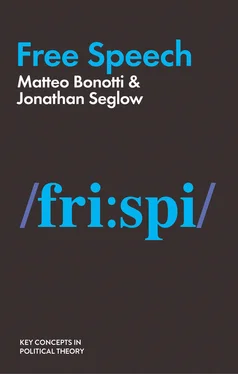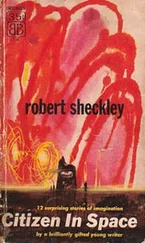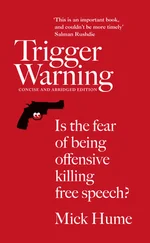Although these two concerns are real, conceptualising democracy in deliberative terms goes a long way towards addressing the issues posed by representative democracies that limit free speech. On the deliberative view, free speech is the lifeblood of a democratic political culture; thus, in limiting it too severely, actual democracies would not properly respect their own normative ideal. Even if contemporary constitutional democracies in Europe, North America, Australasia and elsewhere fall some way short of the deliberative democratic ideal, the fact that they invariably give free speech constitutional protection bespeaks a degree of understanding of the notion that free speech is constitutive of a democratic political culture. At the same time, democratic free speech is compatible with, indeed may demand, some limits beyond the regulatory ones we have noted. For example, hate speech that claims that members of a minority ethnic or religious group are not genuinely members of the political community disrespects that group’s right to participate in the democratic process; for that reason hate speech might be regulated.
Contemporary free speech theorists who have adopted the democratic view have defended a largely speaker-centric approach. For Robert Post, the value of democratic rule lies not so much in informed decision-making as in citizens’ ability reasonably to regard themselves as the ultimate authors of the law. This ‘requires that citizens have access to the public sphere so that they can participate in the formation of public opinion’ (Post 2011, p. 482) as well as hold their governments accountable to that opinion. This view sees free speech as the counterpart of formal voting, which (directly) puts in place a government and (indirectly) influences citizens’ attitudes in the public domain. Free speech seeks to shape citizens’ views, an important feature of democracy and something that elected governments always have an eye on.
A similar view is advanced by James Weinstein, who asserts ‘an uncontestable right of each individual to free and equal participation in the political process, including the public discussion by which our society’s laws, policies, and norms are evaluated’ (Weinstein 2011, p. 505). Weinstein connects the right to public speech with the value of political legitimacy. Just as it is illegitimate for unelected governments to make law and policy, so the decisions of fully elected governments are illegitimate, according to Weinstein, unless every citizen is free to speak out in favour of or against them (p. 498). It is this, according to Weinstein, which explains the cardinal US First Amendment principle of viewpoint neutrality: that it is always illegitimate for governments to limit the expression of any particular view or opinion, however controversial. (We consider the implications of Weinstein’s position for hate speech in the next chapter.)
In his book Democracy and the Problem of Free Speech , the legal theorist Cass Sunstein defends another democracy-based argument for free speech by drawing an explicit distinction between ‘upper tier’ (high-value) speech, which contributes to public deliberation, and ‘lower tier’ speech, which does not. The upper tier category is capacious: apart from overtly political speech, it includes artistic, literary and cultural critique and broader social commentary (Sunstein 1993, pp. 148–53). Upper tier speech merits especially strong protection – that is, not just through viewpoint neutrality but also through the more encompassing content neutrality, which forbids governments from regulating speech merely on the grounds that it covers contentious topics, regardless of the view that is expressed on them. Thus, if a company forbade its employees to post any political views on social media, it would violate the constraint of content neutrality. Only content-neutral restrictions on the time, place and manner in which one expresses oneself may on occasion be justified at the level of upper tier speech. Thus it might be legitimate, for example, for a company to bar employees from posting political views on social media during work hours.
The lower tier category consists of all other speech, including commercial speech (e.g. product descriptions, advertising), scientific speech, unlicensed medical and legal advice, depictions of violence in the media, defamation, hate speech, at least some pornography (some of which might also be political, as we shall see in Chapter 5), criminal speech such as bribery, insider trading, perjury, and threats of injury. This is a slightly confusing category, because it includes speech that is, actually or potentially, harmful in various ways and might even be better classified as conduct, not speech (e.g. threats and bribery), and speech that is not harmful but is not political either, even in the most expansive sense.
At any rate, the question is whether focus on political speech, broadly considered, is a strength or a weakness of the democratic view. The case for the latter is that there are certainly some kinds of intuitively high-value speech that are not political (or are political only if everything else is, which makes that category uninformative). Scientific speech is one example. Perhaps some of it is political – speech about climate change, for example – but much is not (e.g. pure mathematics), and anyway we might distinguish, say, between the science of climate change and its political implications. The religious speech of a closed religious order, such as the Amish or ultra-orthodox Jews, is another example. Speech on intimate matters between partners, family and friends is yet another. But, as we noted at the start, free speech often means in effect free public speech, something that these three forms normally are not. Given that there are rights to academic freedom, to freedom of religious conscience, and to a private life that will protect speech in these areas, is it enough if the democratic view explains only the value of public speech?
Indeed the argument from democracy has an important advantage. In a liberal society there is always a presumption in favour of individual liberty, unless such liberty interferes with the interests of others. By helping us to distinguish between political speech (broadly interpreted) and non-political speech, the democracy argument explains why it may often be more permissible to regulate the latter than to regulate the former. As Robert Post notes, for example, an attack on the reputation of a public figure might fairly be seen as a contribution to political debate in a way in which defamation of a private individual is not (Post 2011, p. 480). The latter is a potential civil wrong. By contrast, the US Supreme Court upheld the former doctrine in New York Times Co. v Sullivan (1964), where that newspaper published an advert critical of the behaviour of the police in Alabama, which had arrested Martin Luther King Jr, as well as in other cases since then. In general, political speech may be more important to protect just by virtue of its connection with state power, and therefore with our other rights and freedoms.
Interconnections between the three theories
Are the three theories examined in this chapter alternatives? Could we not endorse them all? There seems to be no reason to think that free speech cannot have multiple foundations (Greenawalt 1989), but at the same time we should be careful. Any justification for free speech also shapes our view of its limits; indeed, that is part of its point. While the autonomy theory is probably the most capacious, the truth theory has a harder time protecting free speech unconnected to the search for truth – much hate speech or commercial speech, for example – while on the democratic view hate speech could be taken as a contribution to democratic debate, or perhaps as undermining it, if it impedes others’ participation. In the chapters that follow we discuss in greater detail what these divergent implications are. To conclude this chapter, we say something briefly from the converse perspective. How are these theories related?
Читать дальше












